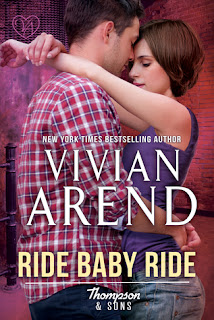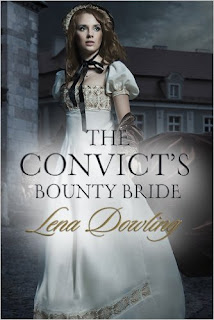2 stars
This is a case where my reading experience and thoughts about the book differ greatly. I read Starling obsessively over the course of a single night, caught up in the crazy-sauce plot and the plucky heroine fighting for a better future. However, even as I did so, I was aware that the whole thing was steeped in toxic masculinity and the Madonna/whore complex. If Starling had been the old-school romance it so much resembles, I probably could have given it a bit of leeway, but it's not and my rating had to reflect the fact that this is a book - published in the Year of Our Lord 2015 - with some serious unchallenged on-page misogyny.
So, the crazysauce plot is this: Starling Smith is fired from her new job at Seymour's Emporium because her male supervisor - who doesn't believe he needs female employees - tells the owner, Alisdair Seymour, that she is "annoying the customers". However Alisdair offers her another position: posing as his wife. He's had word from his sister that she will be visiting, with a mystery woman in tow. Desperate to avoid her matchmaking, he offers Starling 40 pounds for two weeks of pretending to be his newly-wedded wife, only to have his plan misfire when it turns out that the mystery woman is Lavender, the childhood love who left him to marry another man. As Alisdair's new plan - to use Starling to make Lavender, his real wife-of-choice jealous - also unravels, he realises that neither woman is what he thought, and that he feels much more for Starling than he anticipated.
The whole thing was set up so that the women were continually played off against one another: Lavender against Starling, but also Lavender against one of Alasdair's maids, because Lavender is your classic immoral, manipulative slut who has to steal everyone's man, even if that man is a gardener. In contrast, Starling is such a shining beacon of pure and good white womanhood she could have stepped right out of a Victorian morality tale. She's orphaned, inexplicably graceful and ladylike despite her rough upbringing, and martyrs herself in silence, declining to defend herself when Alasdair repeatedly lays false accusations at her feet.
Taylor makes it explicitly clear that Alasdair means to let Starling "set the limits" of their physical relationship and would never "take her" without her consent, and yet there were several scenes that bordered on rape-y. Since he believes Starling to be an ex-prostitute, there's a lot of "I could have her, she's a whore, she wouldn't stop me"-type thoughts, and times where Starling says 'no', but Alasdair takes a while to respond, or reflects afterwards that she didn't really mean it:
At this point, my rating might seem a bit incongruous, but I gave Starling 2 stars for two reasons. The first was that is was so well-written and engaging, I shamefully almost didn't care about any of this stuff until I thought it over after finishing the book. Secondly, I really enjoyed the historical Australian setting, and historical romances set in Australia are unfortunately few and far between. Despite my overwhelming hatred for him, Alasdair's connection to the Ballarat goldfields has stuck with me, and sparked a desire to read a romance set against the multicultural backdrop of the 1850s and 60s Victorian or New South Wales goldfields. If anyone knows of one, please let me know - I can only think of MG/YA novels: some of Kirsty Murray's Children of the Wind books and A Banner Bold in the My Australian Story series from my childhood, and the newer The Night they Stormed Eureka by Jackie French, and of Zana Bell's gold rush romance Fool's Gold, which I really enjoyed, but which is set on the South Island of New Zealand.
This is a case where my reading experience and thoughts about the book differ greatly. I read Starling obsessively over the course of a single night, caught up in the crazy-sauce plot and the plucky heroine fighting for a better future. However, even as I did so, I was aware that the whole thing was steeped in toxic masculinity and the Madonna/whore complex. If Starling had been the old-school romance it so much resembles, I probably could have given it a bit of leeway, but it's not and my rating had to reflect the fact that this is a book - published in the Year of Our Lord 2015 - with some serious unchallenged on-page misogyny.
So, the crazysauce plot is this: Starling Smith is fired from her new job at Seymour's Emporium because her male supervisor - who doesn't believe he needs female employees - tells the owner, Alisdair Seymour, that she is "annoying the customers". However Alisdair offers her another position: posing as his wife. He's had word from his sister that she will be visiting, with a mystery woman in tow. Desperate to avoid her matchmaking, he offers Starling 40 pounds for two weeks of pretending to be his newly-wedded wife, only to have his plan misfire when it turns out that the mystery woman is Lavender, the childhood love who left him to marry another man. As Alisdair's new plan - to use Starling to make Lavender, his real wife-of-choice jealous - also unravels, he realises that neither woman is what he thought, and that he feels much more for Starling than he anticipated.
The whole thing was set up so that the women were continually played off against one another: Lavender against Starling, but also Lavender against one of Alasdair's maids, because Lavender is your classic immoral, manipulative slut who has to steal everyone's man, even if that man is a gardener. In contrast, Starling is such a shining beacon of pure and good white womanhood she could have stepped right out of a Victorian morality tale. She's orphaned, inexplicably graceful and ladylike despite her rough upbringing, and martyrs herself in silence, declining to defend herself when Alasdair repeatedly lays false accusations at her feet.
Taylor makes it explicitly clear that Alasdair means to let Starling "set the limits" of their physical relationship and would never "take her" without her consent, and yet there were several scenes that bordered on rape-y. Since he believes Starling to be an ex-prostitute, there's a lot of "I could have her, she's a whore, she wouldn't stop me"-type thoughts, and times where Starling says 'no', but Alasdair takes a while to respond, or reflects afterwards that she didn't really mean it:
Her fist thumped his shoulder and she tightened her face. He leaned forward and trued to take her mouth, but she turned her head away. "Stop. Let me go."The uncaring beast angled his hips and teased partway into the woman he didn't give a shake of his head for, while outside in the hall, separated from him only by a door, his family and his beloved Lavender made their way to their respective bedrooms. Starling gasped. Using a whisper of repressed rage, she said, "Any further and I'll charge you five sh...pounds." His eyes flitted over her face. She could see him consider. Efficiently, as though he'd judged the price too high, he buttoned his trousers. (loc. 2490)Throughout the book, there are practically big, flashing neon signs that point out Alasdair is actually Mr. Rapey McRapeculture. He spends a ridiculous amount of time slut-shaming Starling - either mentally or to her face - and, sometime after the above excerpt, Starling even says to him resignedly "You don't understand the word 'No'. You never have. To you the word means later." (loc. 2831). He is such a catch, even excluding the way he intends to marry Lavender and make Starling his mistress.
At this point, my rating might seem a bit incongruous, but I gave Starling 2 stars for two reasons. The first was that is was so well-written and engaging, I shamefully almost didn't care about any of this stuff until I thought it over after finishing the book. Secondly, I really enjoyed the historical Australian setting, and historical romances set in Australia are unfortunately few and far between. Despite my overwhelming hatred for him, Alasdair's connection to the Ballarat goldfields has stuck with me, and sparked a desire to read a romance set against the multicultural backdrop of the 1850s and 60s Victorian or New South Wales goldfields. If anyone knows of one, please let me know - I can only think of MG/YA novels: some of Kirsty Murray's Children of the Wind books and A Banner Bold in the My Australian Story series from my childhood, and the newer The Night they Stormed Eureka by Jackie French, and of Zana Bell's gold rush romance Fool's Gold, which I really enjoyed, but which is set on the South Island of New Zealand.











